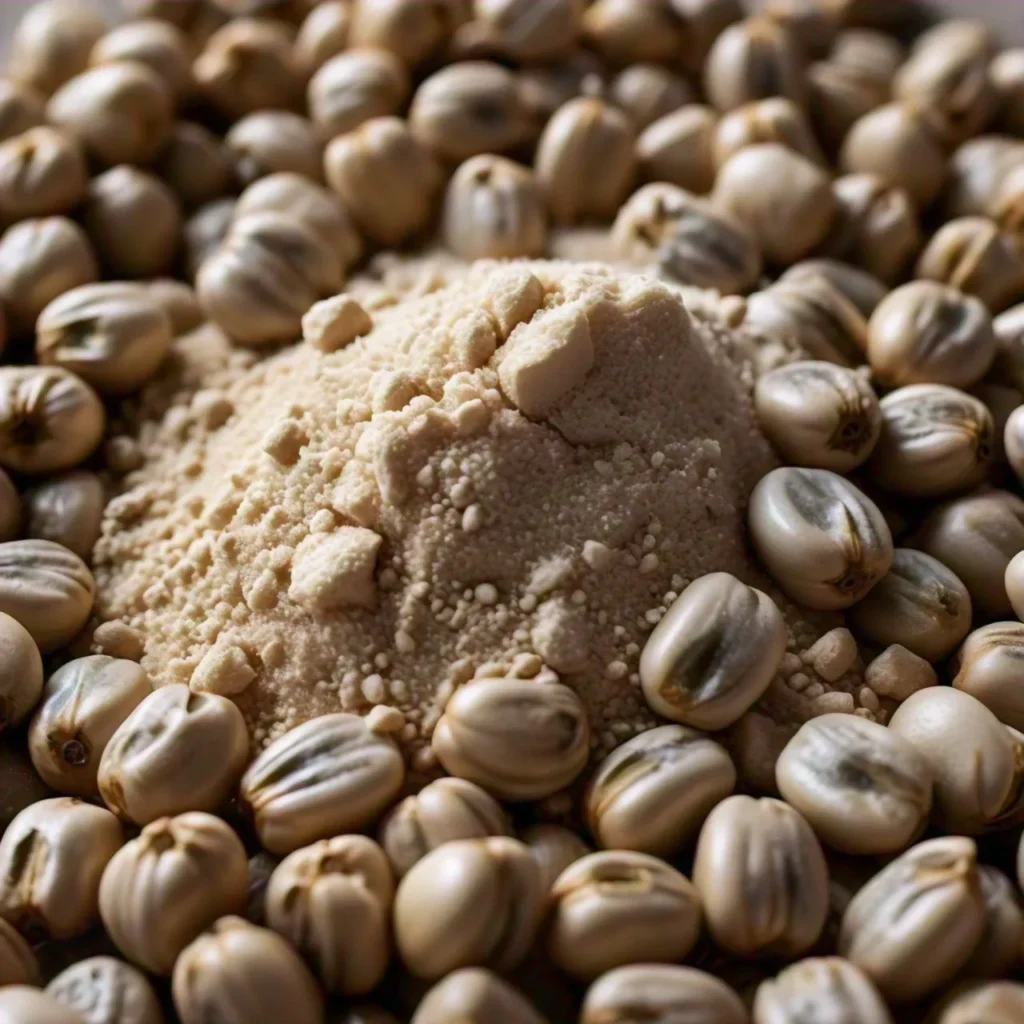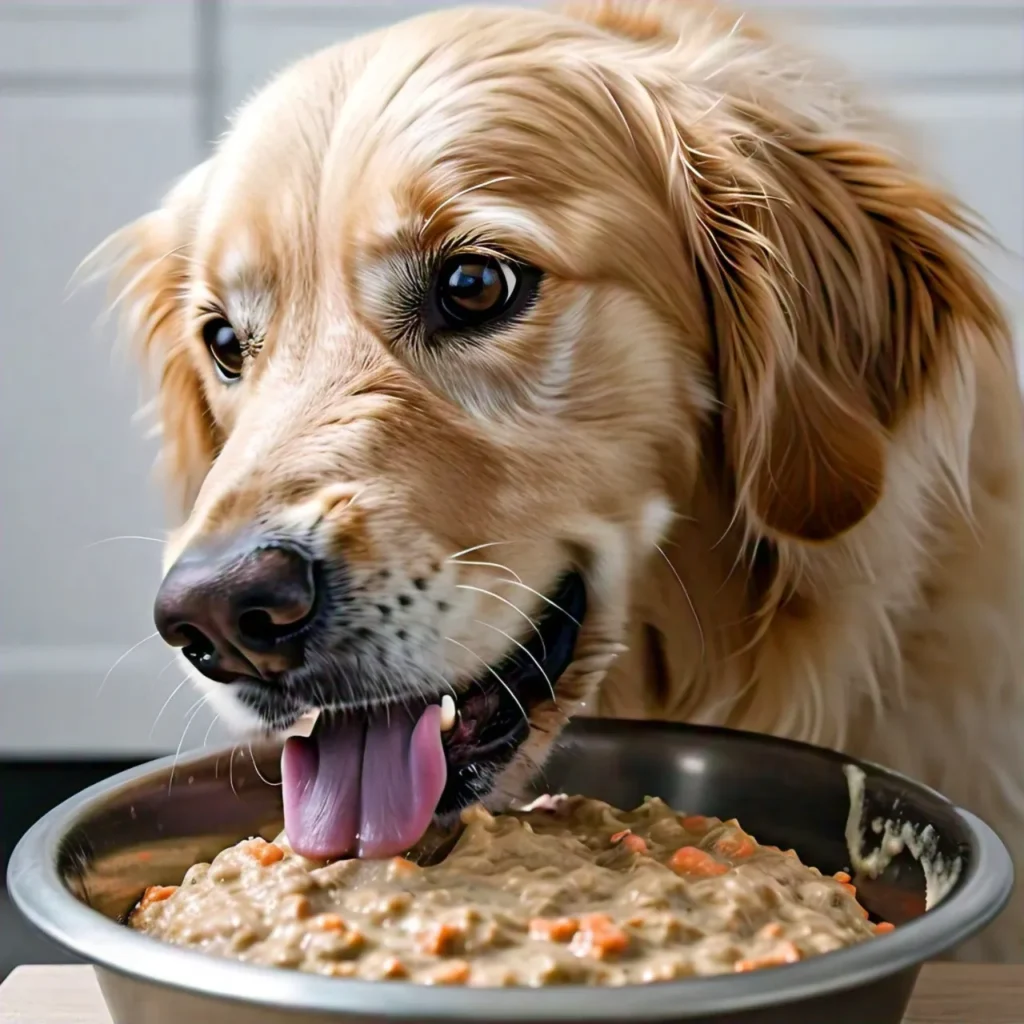As pet owners, we constantly worry about what goes into our dog’s food. One common ingredient you may come across in dog food is guar gum. But is guar gum safe for dogs, and should it be part of their diet? In this guide, we’ll explore everything you need to know about guar gum, its safety, and its impact on canine health.
What Is Guar Gum?
Guar gum is a natural polysaccharide extracted from guar beans. It’s often used as a thickening agent in human and pet foods due to its ability to bind water and improve texture. Guar gum is frequently added to canned dog food, treats, and even certain dry kibble formulations to give them a smoother consistency.
Is Guar Gum Safe for Dogs?
The short answer is yes—guar gum is generally considered safe for dogs in small amounts. It’s approved for use in pet food by the FDA and other regulatory agencies around the world. However, there are some important caveats and considerations regarding the quantity and the overall health impact of guar gum in your dog’s diet.
1. Natural but Processed
Guar gum, despite being natural, undergoes heavy processing to transform it from bean form into a food additive. While this doesn’t necessarily make it harmful, processed ingredients can sometimes cause mild digestive issues in sensitive dogs.
2. Amount Matters
When consumed in small amounts, guar gum doesn’t usually cause any problems for dogs. It’s typically found in low concentrations in commercial dog foods. However, if fed in larger quantities, guar gum may lead to gastrointestinal issues like gas, bloating, or diarrhea. These side effects, while rare, can be concerning, especially if your dog has a sensitive stomach.
Benefits of Guar Gum in Dog Food
While guar gum is primarily used as a thickening agent, it may have a few potential benefits for dogs when used in appropriate amounts:

1. Improved Digestive Health
Guar gum acts as a soluble fiber, which can help improve digestion by regulating bowel movements. In small amounts, it can help promote a healthy gut microbiome, contributing to overall better digestion.
2. Low-Calorie Additive
One of the reasons guar gum is preferred in dog food production is that it adds almost no calories. If your dog needs to maintain or lose weight, guar gum can provide the texture and thickness needed in canned foods without adding extra calories or fats.
3. Increased Hydration
In canned dog food, guar gum helps to retain moisture, which can improve the food’s hydration levels. This is beneficial for dogs that don’t drink enough water or those prone to dehydration, especially in warmer climates or for senior dogs.
Risks of Guar Gum for Dogs
While guar gum is generally safe, it’s important to be aware of potential risks, especially when dogs consume it regularly or in larger amounts.
1. Digestive Issues
Excessive amounts of guar gum can lead to diarrhea, bloating, or flatulence. If your dog shows signs of gastrointestinal discomfort after eating a new food containing guar gum, it’s wise to consult your veterinarian.
2. Allergies
Though rare, some dogs may be allergic to guar gum. Signs of an allergic reaction may include skin irritation, itching, or digestive distress. If you suspect your dog has a sensitivity, remove foods with guar gum and monitor their health.
3. Excessive Fiber
While fiber is generally good for dogs, too much can interfere with nutrient absorption. Excessive soluble fiber, like that in guar gum, can cause stool to become too soft or loose, which can indicate poor digestion.
My Personal Experience with Guar Gum in Dog Food
From my experience as a dog owner, I first noticed guar gum in my dog’s wet food label when I started to pay closer attention to ingredients. Initially, I was a bit concerned, especially after reading mixed opinions online about processed additives. However, after consulting with my vet, I realized that the small amounts of guar gum in high-quality dog food are perfectly safe.
My dog has been eating canned food with guar gum for over a year without any adverse effects. In fact, I’ve noticed that the food stays fresher and is easier to serve because of the smoother texture. However, I always make sure to keep a balanced diet with plenty of whole ingredients, and I monitor for any changes in behavior or digestion.
How to Choose Dog Food with Guar Gum
When selecting dog food, it’s always a good idea to review the ingredients list carefully. Here are some tips if guar gum is included in your dog’s food:
1. Check the Position on the Ingredient List
Ingredients are listed by weight, so if guar gum appears at the end of the list, it means it’s present in very small quantities. This is usually not a cause for concern. If it’s among the first few ingredients, it’s worth reconsidering that food, as it may contain more than your dog needs.
2. Monitor Your Dog’s Health
Whenever you introduce a new food, keep an eye on how your dog responds. If there’s no noticeable digestive discomfort and your dog seems happy and healthy, then the small amount of guar gum is likely harmless.
3. Go for High-Quality Brands
Choose well-reviewed, high-quality dog food brands that are transparent about their ingredients and their sourcing. Reputable brands often ensure the ingredients, including guar gum, are used in minimal and safe quantities.
Alternatives to Guar Gum
If you’re still uncomfortable with guar gum in your dog’s food or if your dog has a sensitive stomach, there are several alternatives used as thickening agents in dog foods:
- Xanthan Gum: Another commonly used thickening agent in pet food that’s generally safe but could cause digestive issues in large amounts.
- Carrageenan: Derived from seaweed, it’s often used in canned dog foods but is more controversial than guar gum due to potential health concerns.
- Agar-Agar: Another seaweed-based thickener, often used as a vegetarian alternative to gelatin, with similar binding properties.
Conclusion: Should Dogs Eat Guar Gum?
In moderation, guar gum is safe for dogs and is commonly used in pet foods without any harmful effects. However, if your dog has a sensitive stomach or if you’re aiming for a more natural, unprocessed diet, you might prefer to choose foods that use other thickening agents or avoid them altogether.
As always, it’s essential to consult with your veterinarian before making any changes to your dog’s diet, especially if you notice any digestive issues or if your dog has known sensitivities. Ultimately, a balanced, well-rounded diet with minimal additives is best for your dog’s long-term health.
